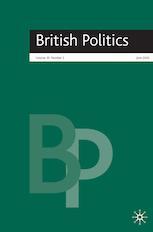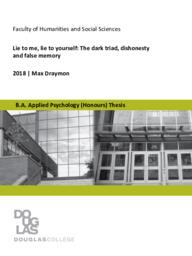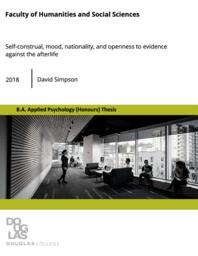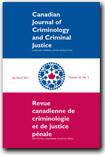Humanities and Social Sciences
Related Works
Content type
Digital Document
Abstract
The year 2010 constituted a favourable opportunity for the greater descriptive representation of women in the UK Parliament. The parties were publicly competing over the issue; Parliament had its own Committee looking at it; and there were plenty of vacancies for candidates in each of the parties’ held seats, as many more MPs than usual stood down. The outcome was disappointing. There was an overall increase in the number of women MPs – up from 128 to 142 – but this was only a 2.5 per cent increase on 2005. Inter-party differences remain. The Liberal Democrats witnessed a decline in the number and percentage of their women MPs and candidates; the Tories saw a doubling of their number, with women now constituting 16 per cent of their parliamentary party; and Labour has both the largest number and percentage of women MPs. These patterns are best explained by the parties’ different attitudes towards equality guarantees – measures that, all other things being equal, return women MPs to Parliament. In other words, Labour's All Women Shortlists once again delivered. The other parties’ efforts were simply less efficient at translating women candidates into MPs. Looking to the future, the picture is far from rosy. The Coalition's plans for political reform will likely increase competition for selection at the next general election to women's detriment, and the impact of the Independent Parliamentary Standards Authority raises the possibility that their supply might decrease too.
Origin Information
Content type
Digital Document
Abstract
The ‘death’ of German Idealism has been decried innumerable times since its revolutionary inception, whether it be by the 19th-century critique of Western metaphysics, phenomenology, contemporary French philosophy, or analytic philosophy. Yet in the face of two hundred years of sustained, extremely rigorous attempts to leave behind its legacy, German Idealism has resisted its philosophical death sentence. For this exact reason it is timely ask: What remains of German Idealism? In what ways does its fundamental concepts and texts still speak to us? Drawing together new and established voices from scholars in Kant, Fichte, Hegel, and Schelling, this volume offers a fresh look on this time-honoured tradition. It uses myriad of recently developed conceptual tools to present new and challenging theories of its now canonical figures. --From publisher description.
Origin Information
Content type
Digital Document
Abstract
When legal challenges to research confidentiality arise, researchers are expected to resist while the institutions that approve their research provide legal support to enable that resistance. Although researchers have done their part, university administrators have been much less consistent doing theirs. Canada’s federal policy now affirms university administrations “must” provide independent legal representation and “encourages” them to develop policies that articulate how they will do so. A national survey of Research Ethics Board (REB) Chairs and administrators found only one such policy, which turned our attention to factors that impeded creation of others like it. Administrative inertia, a lack of clear lines of responsibility, and resource issues top the list of justifications respondents offered. Implications for researchers, REBs, and university administrators are discussed.
Origin Information
Content type
Digital Document
Abstract
This essay presents an overview of what I call “Cartesian egalitarianism,” a current of political thought that runs from François Poullain de la Barre, through Simone de Beauvoir, to Jacques Rancière. The impetus for this egalitarianism, I argue, is derived from Descartes’ supposition that “good sense” or “reason” is equally distributed among all people. Although Descartes himself limits the egalitarian import of this supposition, I claim that we can nevertheless identify three features of this subsequent tradition or tendency. First, Cartesian egalitarians think political agency as a practice of subjectivity. Second, they share the supposition that there is an equality of intelligences and abilities shared by all human beings. Third, these thinkers conceptualize politics as a processing of a wrong, meaning that politics initiates new practices through which those who were previously oppressed assert themselves as self-determining political subjects.
Origin Information
Content type
Digital Document
Abstract
Presented at the <a href="https://cas-sca.ca/en/conferences/">Canadian Anthropological Society/La Societe,</a/> Santiago de Cuba, Cuba (May, 2018).
The potlatch is a multifaceted institution of Northwest Coast lifeways. Angelbeck, presents how the weight of interpretations and discussions about this renowned ceremony often can favour those of the lavish gift-giving demonstrations of ‘conspicuous consumption’, or warfare through gifting. Many have emphasized these as “interest-bearing investments” to produce greater future returns. Such interpretations concentrate on the role of self-interest. He highlights, how such accounts are often in contrast to how Northwest Coast peoples speak of potlatches, whereby these are considered positive ceremonies of celebration, public accounting and witnessing, and community building. The narrow and limited historical context for many initial evaluations of the potlatch as affected by colonial influences, including fur trade wealth, mercantilism, and capitalism will be highlighted. The intent is to allow us to better convey and contextualize potlatch dynamics and alliances between groups both now, as well as, in the past.
Origin Information
Content type
Digital Document
Abstract
Presentation embargoed pending a permission.
Conference presentation delivered at the <a href="https://www.ecpg.eu/">European Conference for Politics and Gender / ECPG</a>, (June, 2017), in Lausanne, Switzerland.
The extant literature on political representation demonstrates white men dominate political legislatures (Murray, 2014), whilst women and ethnic minorities are under-represented relative to their proportion of the population (Hughes, 2009). This pattern holds true for both the UK and Canada, although the UK House of Commons has moved closer to gender balance than Canada’s, while Canada’s House of Commons has moved closer to mirroring the country’s ethnic composition than has the UK. This paper longitudinally explores these representational differences. The research is underpinned by an intersectional analysis exploring the multiple ways in which gender and ethnicity interact at both the party level and in the national media. We argue the specific construction of ‘problematic’ political identities, influenced by the interaction between racialized and gendered stereotypes, makes it especially hard for ethnic minority politicians to become elected. Although the under-representation of ethnic minority women in the UK and Canada has attracted scholarly analysis, less attention has been paid to the ways in which gender and ethnicity interact to affect the representations of male and female ethnic minority politicians. Accordingly, this paper provides a multi-year comparative overview of ethnic minority descriptive representation in the UK and Canada and analysis of party responses to address ethnic minority under-representation.
Origin Information
Content type
Digital Document
Abstract
The Dark Triad Traits (DTT: consisting of Psychopathy, Machiavellianism, and Narcissism) are clearly linked to deceptive and manipulative behaviour, yet little is known about whether people with high levels of DTTs deceive themselves in order to convince others. This online study investigated whether the DTTs predicted false memory levels, assessed by the DRM paradigm (Deese, 1959: Deese & McDermott, 1995), which was modified to include three neutral word lists and three word lists constructed around DTT-related lures (Power, Control, and Status). The sample (n=161) consisted of 136 females and 25 males from the undergraduate research pool and through social networks. Among the three DTTs, psychopathy was most closely predictive of self-reported dishonesty. However, results showed that psychopathy and narcissism significantly predicted lower rates of adopting false memories for neutral lures, whereas Machiavellianism was somewhat predictive of adopting higher false memory levels, particularly for the DTT lure (control). These findings indicate that among the DTTs, psychopathy and narcissism are associated with a lower likelihood of self-deception, while Machiavellianism may increase the probability of self-deception.
Origin Information
Content type
Digital Document
Abstract
There is considerable evidence that people process information in a manner that favours prior beliefs, and that they are resistant to evidence against those beliefs. People who believed in an afterlife were recruited, and they all indicated their level of confidence. This study analyzed the effect of self-construal, mood, and nationality on openness to belief-contradicting evidence. Our study used a 2 (self-construal: rational vs fallible) X 2 (mood: positive vs negative) X 2 (nationality: Western vs non-Western) factorial design. Self-construal was manipulated through the use of questionnaires, while mood was manipulated with videos. All participants were exposed to arguments that contradicted their beliefs, and they indicated how convincing the arguments were. Their ratings of the arguments were our measure of openness to belief-contradicting evidence. There was a strong negative correlation between initial belief confidence and ratings of the arguments. Participants who were more confident in their beliefs tended to find the arguments unconvincing, but participants with less confidence tended to find the arguments convincing. Self-construal did not produce significant differences in ratings of the arguments, and neither did the mood manipulation. There was also no significant difference in average ratings between Westerners and non-Westerners. However, there was an unexpected interaction between nationality and self-construal. A fallible self-construal led to significantly lower ratings of the arguments for Westerners, while it led to higher ratings of the arguments for non-Westerners. Possible explanations of this finding are discussed, including identity threat and differences is self-serving bias.
Origin Information
Content type
Digital Document
Abstract
Although there has been extensive research on the independent predictor variables of high school drop out, less research has been dedicated to explaining the relationships among these variables. This exploratory study examined the relationship between socioeconomic status (SES) and academic self-efficacy, specifically to see if delay discounting could be acting as a moderator between the two variables. Participants were 20 high school students from a medium-sized city in Western Canada, all enrolled in a dropout prevention program. Data was collected via surveys on three separate occasions throughout the program. The results indicated a non-significant positive correlation between SES measures and academic self-efficacy. Delay discounting, defined as lack of willingness to wait for larger, but delayed rewards, had a non-significant negative correlation with both academic self-efficacy and two of three SES measures. Delay discounting was a significant moderator of the relationship between SES and academic self-efficacy. Lastly, the early school-leaving sample was found to have significantly higher levels of delay discounting than a college-based comparison sample. These findings suggest that the individual difference variable of delay discounting may help explain inconsistent relationships between socioeconomic background and likelihood of academic success.
Origin Information
Content type
Digital Document
Abstract
Sentencing in Canada is beset by many problems yet one weakness stands above the rest: the disproportionately high rates of Aboriginal incarceration. This article documents current and historical trends in levels of Aboriginal incarceration at the provincial/territorial and federal levels since 1978. We pay particular attention to the years following two important Supreme Court judgments (in 2001 and 2012) which directed courts to use custody with greater restraint when sentencing an Aboriginal offender. The primary data derive from the annual Adult Correctional Services (ACS) Survey conducted by Statistics Canada. In 2014, Aboriginal persons accounted for just over one quarter of all provincial and territorial admissions, significantly higher than the percentage recorded in 1978 (16%). In fact, over the last 20 years all jurisdictions save one have experienced an increase in the percentage of Aboriginal admissions to provincial correctional institutions. Despite judgments from the Supreme and provincial courts of appeal, and a number of other remedial interventions such as the creation of so-called ‘Gladue’ courts and an alternate form of custody served in the community, the problem of Aboriginal over-incarceration has worsened, not improved.
Origin Information








